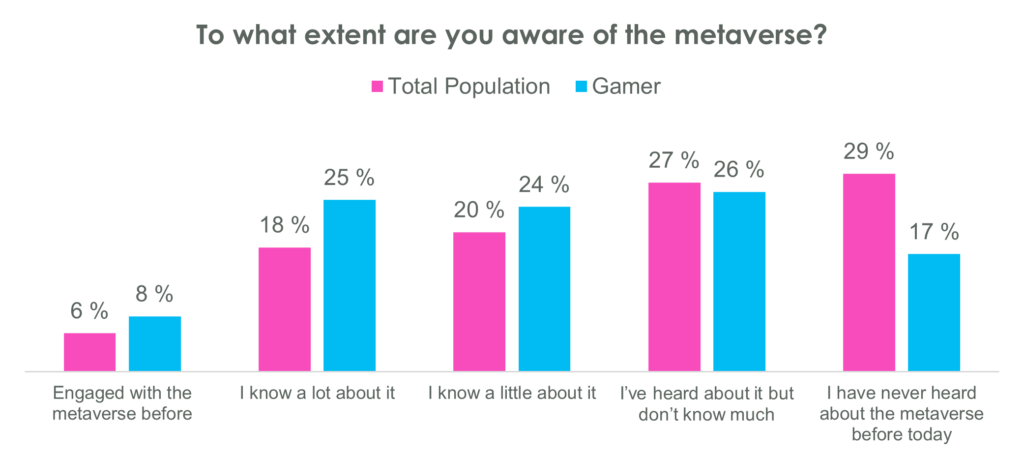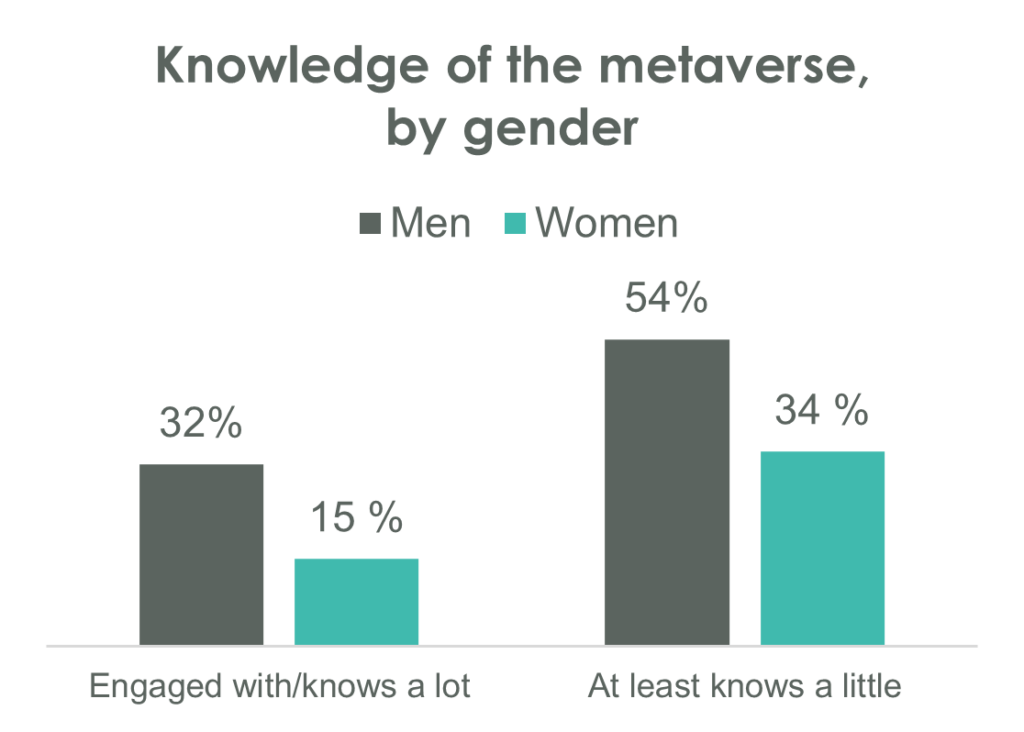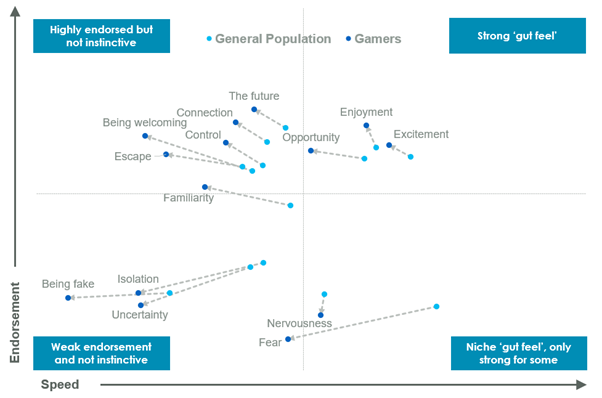Who is most engaged with the Metaverse?

Although there is plenty of buzz around the metaverse, this hasn’t resulted in Americans’ readily engaging in the digital world – at least not yet. Most Americans have heard of the metaverse (71%), but only 6% have engaged with it before.
Compared to the general population, gamers* are more aware of the metaverse, but, similarly, are less likely to engage.
- 83% of gamers have heard of the metaverse (vs. 71% of the general population)
- 57% of gamers feel they have at least some knowledge on the metaverse (vs. 44% of the general population)
- Despite higher rates of awareness among gamers, less than one in ten (8%) have engaged with the metaverse before

Men are twice as likely than females to know a lot or have engaged with the metaverse.
- A third (32%) of men feel they know a lot about the metaverse or have engaged with it before – only 15% of females indicated the same
- 8% of men have engaged with the metaverse, whereas only 3% of females have participated in this digital world

How does the metaverse make people feel?
The most popular emotions associated with the metaverse are overwhelmingly positive. Americans and gamers with knowledge of the metaverse associate it most with the following words (top 5):
| Americans | Gamers |
| Amusement (28%) | Amusement (30%) |
| Happiness (26%) | Surprise (27%) |
| Inspiration (25%) | Happiness (27%) |
| Surprise (23%) | Inspiration (25%) |
| Hope (22%) | Independence (23%) |
Gamers are more likely to associate the metaverse with independence (23% vs. 18% general population). However, they are also more likely to associate the metaverse with anger (16% vs. 10% general population).
Interest in NFTs, digital avatars, events in the metaverse, and virtual reality
Three in five Americans are interested in attending events in the metaverse (58%) and having a digital identify or avatar (56%). This is only slightly less than gamers – 62% of gamers are interested in both attending an event in the metaverse or having a digital identity and avatar.
Overall, there is interest in doing things online in a virtual world, as opposed to a physical one (58% for the general population, 63% for gamers). And 63% of Americans are interested in owning a virtual reality headset, yet only 3% of Americans and 5% of gamers own a VR headset themselves.
Enjoyment, excitement, and opportunity are ‘gut feel’ emotions associated with the metaverse
We timed how quickly respondents associated certain emotions with the metaverse, to identify which ones are a strong gut feel (i.e., a high percentage of respondents associate this emotion with the metaverse and were quick to indicate so).
Excitement, enjoyment, and opportunity are gut feel emotions for gamers and the average American. Interestingly, gamers are much less quick to associate the metaverse with fear.

*Gamers are defined as those who use a console device or PC/Laptop to play video games and have done so in the past month.
Methodology
The research was conducted on Opinium’s US Consumer Omnibus among 2000 US Adults aged 18+ with the results weighted to be nationally representative of the country. The research was in field from March 3 – March 8, 2021.




